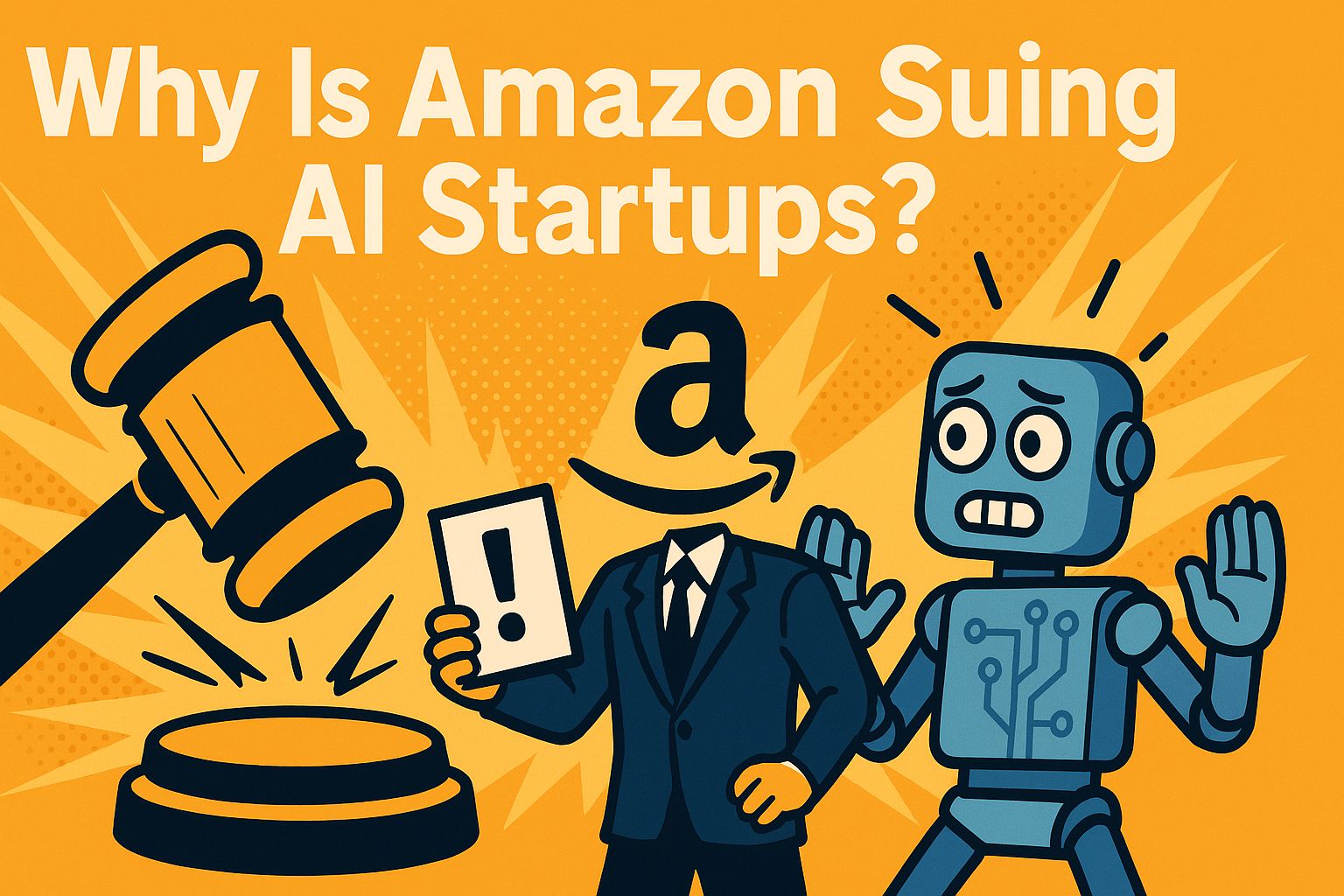Hey {{first_name | there}},
Amazon just sued an AI startup for trying to shop on their website.
While everyone's focused on what AI might do someday, the reality on the ground is messy, complicated, and full of friction that most people don't see coming.
We're supposed to believe AI is going to automate entire industries, but right now, it can't even buy a toothbrush on Amazon without triggering a lawsuit.
Let’s talk about it.
Amazon vs Perplexity
Amazon just sued Perplexity AI to stop them from using their AI shopping agent called "Comet" to buy stuff on Amazon's platform.
Why? Because Perplexity's AI agent was making purchases without properly disclosing it was a bot, not a real person. Amazon says this violates their terms of service and creates privacy risks.
But Perplexity fired back, calling Amazon "a bully" and arguing that users should be able to choose which AI agent helps them shop. They're basically saying: "We're making life easier for people, and Amazon is just scared of competition."
The case also highlights a bigger question: When AI tries to act autonomously (doing things on your behalf without constant supervision), who's responsible when things go wrong?
Either way, it's another data point showing that AI agents operating independently in the real world still face massive friction. Not just technical friction, legal and ethical friction too.
AI Discrimination During Hirings
And speaking of legal friction, there's an even bigger problem going around that most AI companies aren't talking about: hiring discrimination.
According to recent industry research, 61% of HR leaders are now using generative AI to recruit and evaluate talent (up from just 19% in mid-2023). That's massive adoption in less than two years.
But here's the catch: The EEOC (Equal Employment Opportunity Commission) has made it crystal clear that employers are still liable for discriminatory outcomes even when AI makes the hiring decisions.
Here's what's happening:
Resume scanners that prioritize certain keywords can systematically exclude qualified candidates if those keywords correlate with race, gender, or age
Video interview software that analyzes facial expressions and speech patterns can disadvantage people with disabilities or from different cultural backgrounds
"Cultural fit" algorithms often just perpetuate existing demographics instead of assessing actual job qualifications
But here's the kicker: Most AI vendors disclaim liability for algorithmic bias in their contracts. So even if you're using a third-party tool, you're still on the hook under Title VII if it produces discriminatory outcomes.
Translation? Companies rushing to automate hiring with AI are unknowingly creating massive legal exposure. The "efficiency gains" might cost them hundreds of thousands in settlements.
AI as Tool, Not Replacement
Here's something surprising: A family used Claude to negotiate their hospital bill down from $195,000 to $33,000. The chatbot found the billing errors and duplicate charges, but the human had to know what to ask for and how to negotiate.
This shows AI works best when it assists humans, not replaces them.
We also have the case of Universal Music Group and Udio. UMG partnered with Udio (an AI music startup they previously sued) to launch a new platform, licensing their entire catalogue.
Instead of fighting AI, they're now profiting from it. But artists still create the music – AI just helps with distribution.
Even Character.ai is restricting minors to 2 hours per day because kids were getting too emotionally attached to AI characters. They're acknowledging that not every human interaction should be automated.
What This Means For You
If you're building something that tries to fully replace humans at a task, you're swimming against the current.
Amazon's suing AI agents for trying to shop autonomously. Companies are getting hit with discrimination lawsuits for automating hiring. The friction is real.
But humans + AI? That's where the actual wins are happening.
Here's my question for you: Are you building something that assumes humans will be gone? Or are you building something that makes humans more valuable?
Because if the data is telling us anything, it's that the latter is the only thesis that's actually winning right now.
Reply and let me know what you're seeing on the ground.
- Aashish
Want to get the most out of ChatGPT?
ChatGPT is a superpower if you know how to use it correctly.
Discover how HubSpot's guide to AI can elevate both your productivity and creativity to get more things done.
Learn to automate tasks, enhance decision-making, and foster innovation with the power of AI.


